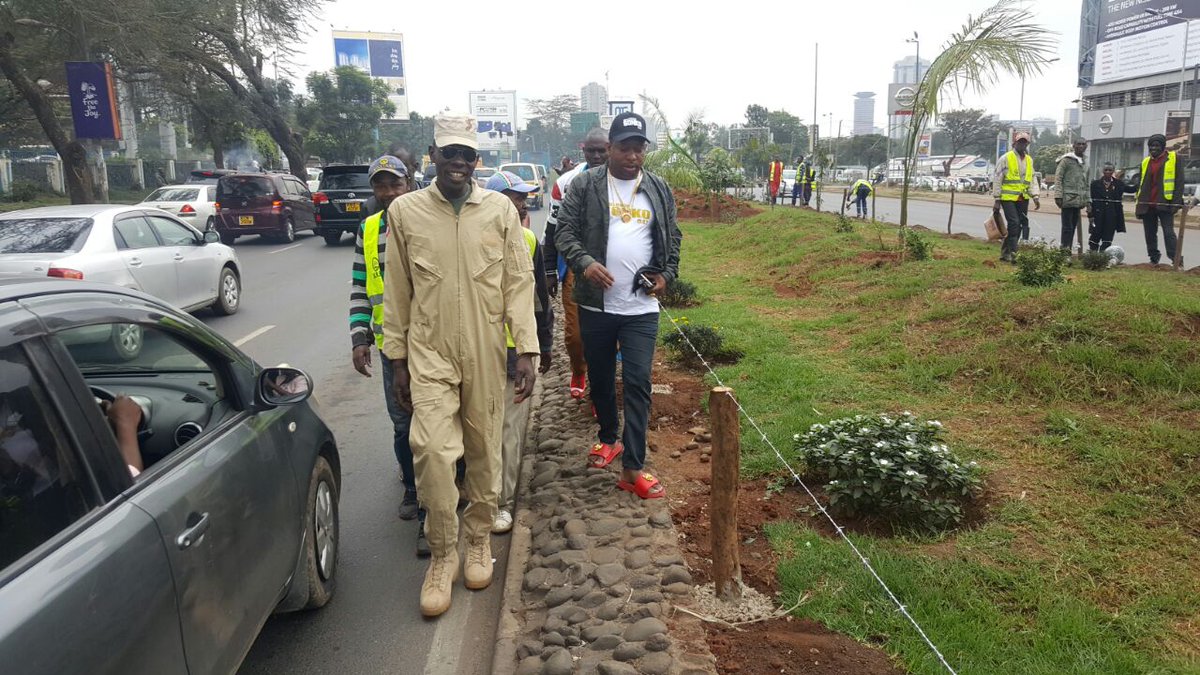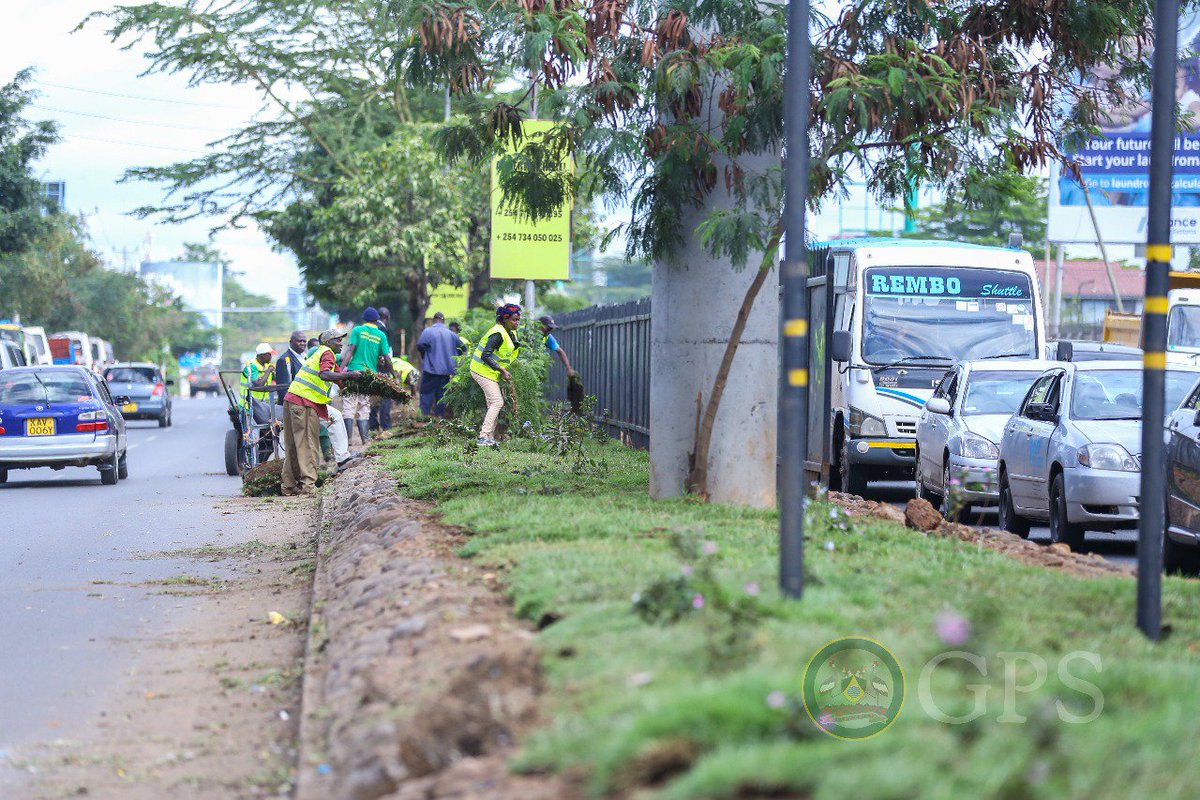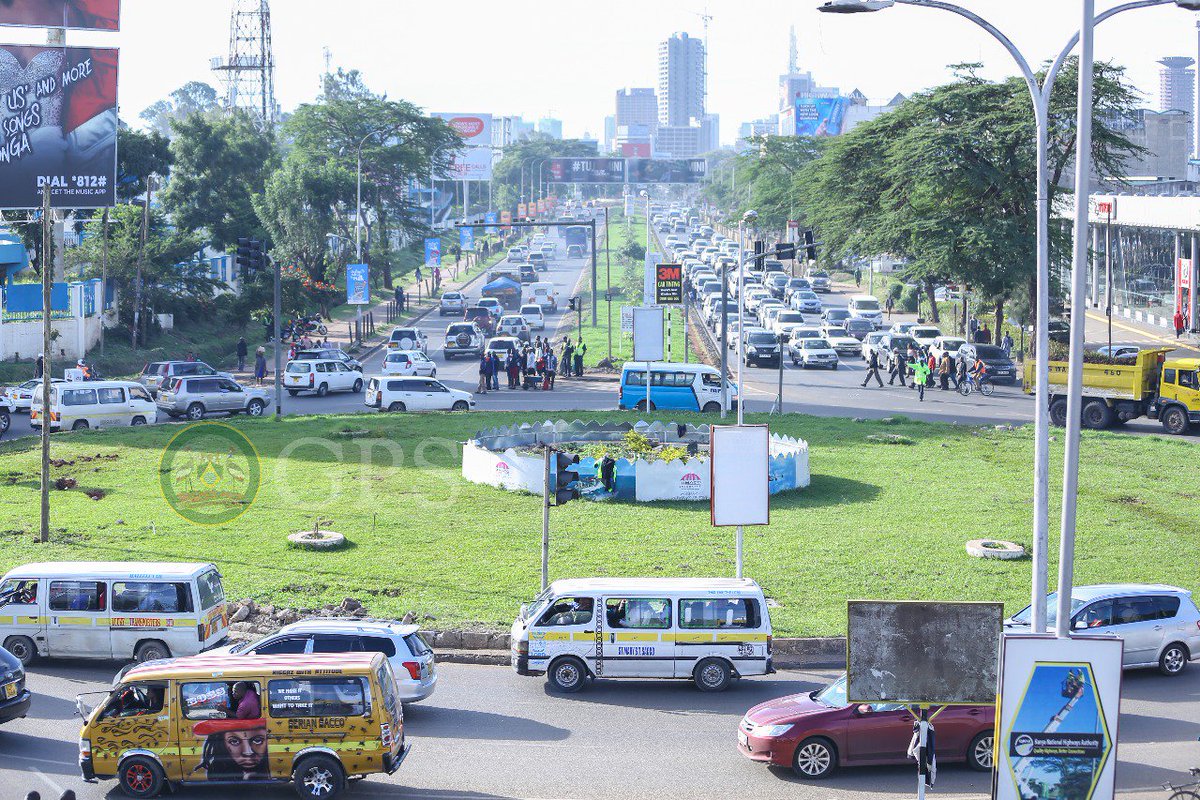
If you walk around the various places in the country’s capital city of Nairobi you will notice a transformation. The governor of Nairobi has decided to do a complete makeover for the city.
But all the transformation made to the cost have not been done for free. The taxpayers have to dig deep to make sure it becomes a reality.

On a Friday morning, young men and women offload grass from a government truck while others dig up and turn the soil in Nairobi as they plant rows upon rows of flowering plants and palm trees, the latest signal of the county’s determination to be green.

To beautify the city, the county government plans to spend Sh30 million this year.
Amid the gloom of a city choked with garbage and running sewage in some estates, the county officials are happy to talk about foliage.
Kenya and its co-hosts Canada and Japan are inviting the world to Nairobi for the first global conference on the sustainable blue economy. #BlueEconomyKE pic.twitter.com/ko6hKpxLhw
— Mike Sonko (@MikeSonko) November 25, 2018
“No area will be left behind to give Nairobi the face of the international city that it deserves. We started by concentrating on the main highways first and then we will move into the feeder roads,” Larry Wambua, the County Executive for Environment, Water, Energy and Natural Resources said.
The urban environmental movement will spread from Mombasa Road, Langa’ta Road, Jogoo Road and the populous Eastleigh estate to the iconic Uhuru Park.

Mr Wambua says they get the grass and trees from nurseries at City Park in Parklands, while the palm trees are bought at Sh50 a tree from Mombasa sellers.
“Most of the grass is from City Park where we have our own nurseries,” Mr Wambua says, adding that occasionally they buy the grass from entrepreneurs when they do not have enough.
During the dry season, the plants are watered at night. Along Mombasa Road, there are water-points through tees that link them to existing underground pipes at intervals of 200 metres and which will come in handy during the dry season. They plan to install sprinklers in roundabouts to water the plants.

The county is also partnering with companies that will plant and maintain roundabout gardens. For instance, Silver Springs Hotel maintains the roundabout next to the Department of Defence while Faulu Group and Equity Bank are in charge of two others across the city.
The Sustainable Blue Economy Conference in Nairobi builds on the momentum of the UN’s 2030 Agenda for Sustainable Development, the 2015 Climate Change Conference in Paris and the UN Ocean Conference 2017 “Call to Action”. #BlueEconomyKE pic.twitter.com/IUdBnOF5Lz
— Mike Sonko (@MikeSonko) November 25, 2018
The workers also line barbed wire along bollards to deter people from stepping on the grass or tampering with the landscaping.
“We have hired about 100 casual workers,” Mr Wambua says. The casuals get Sh600 per day.
In a scale of 1-10 rank Sonko’s attempt to clean the city